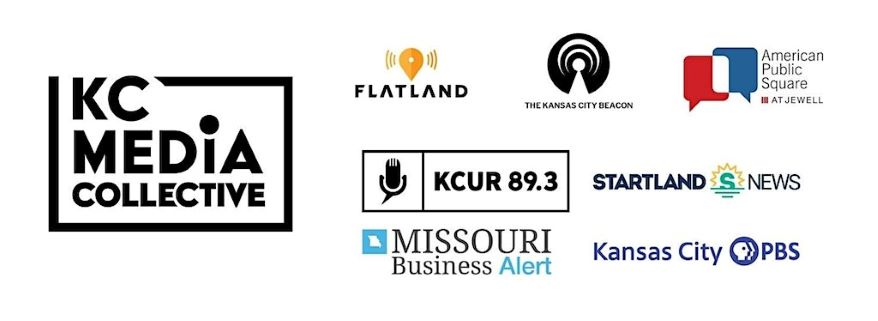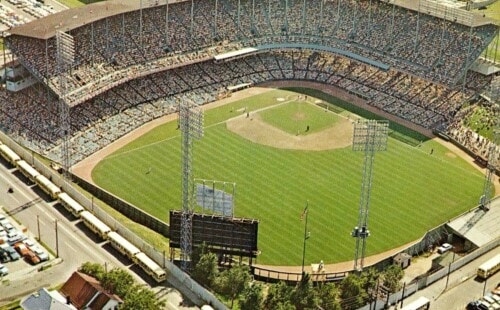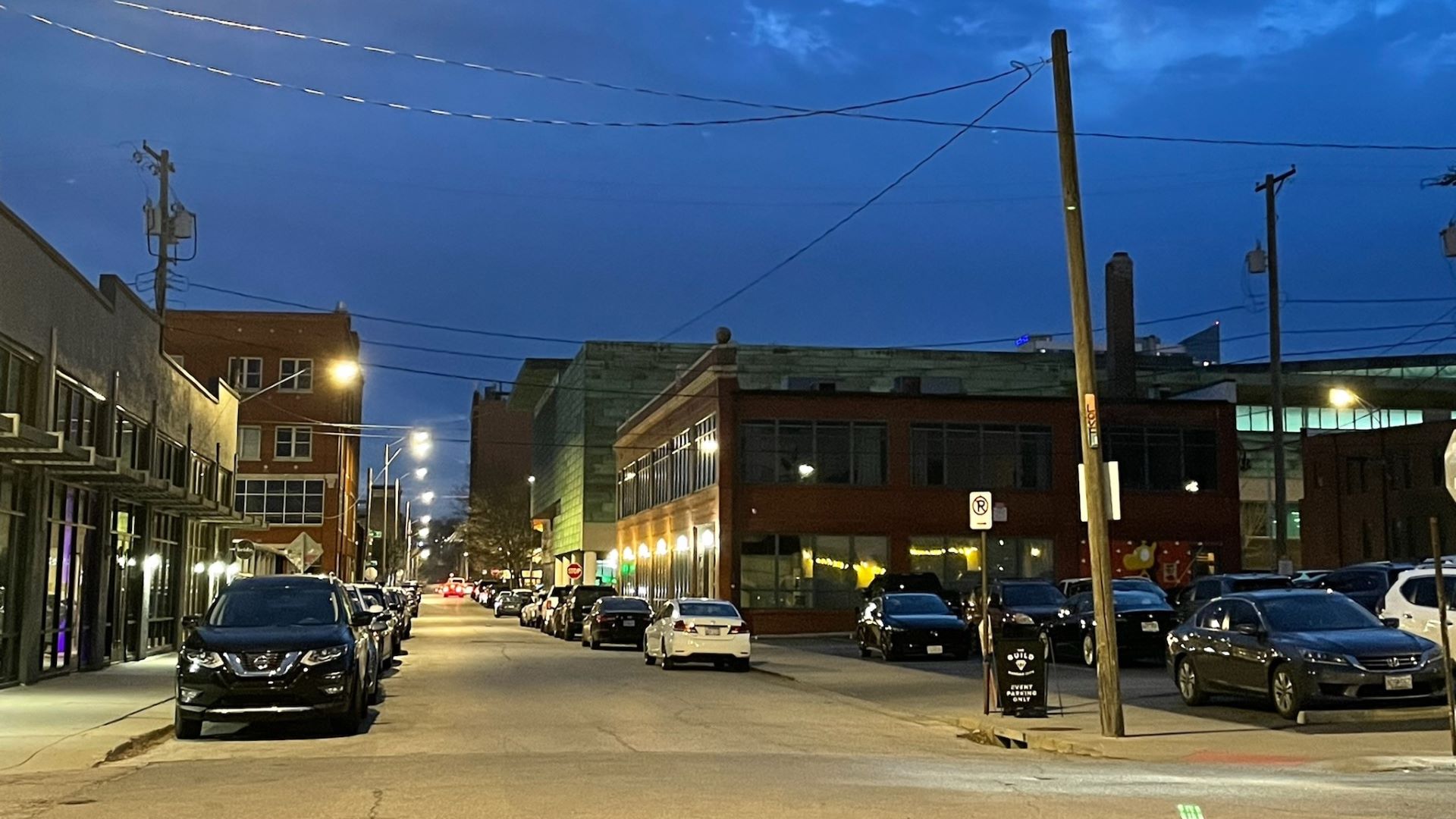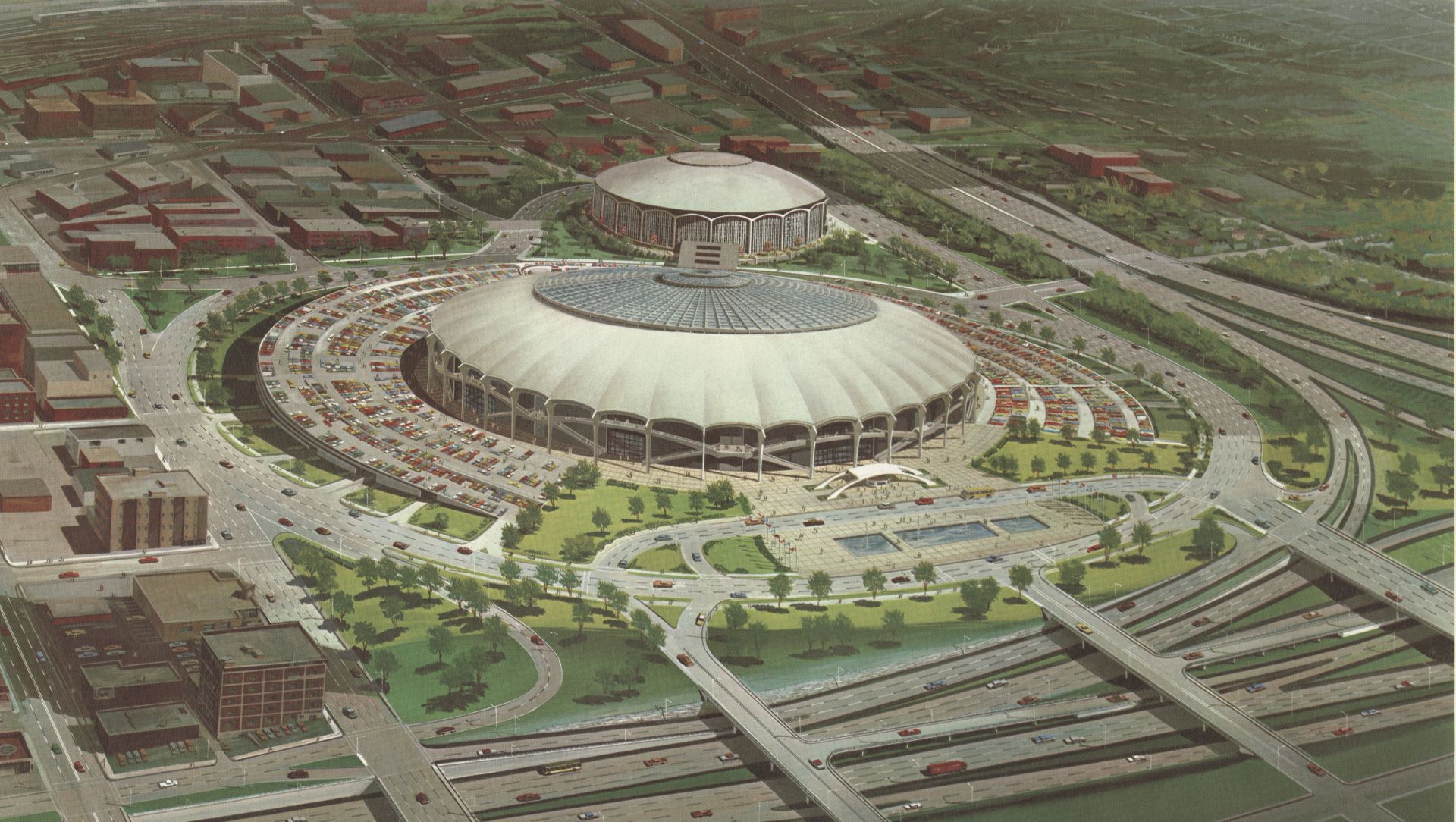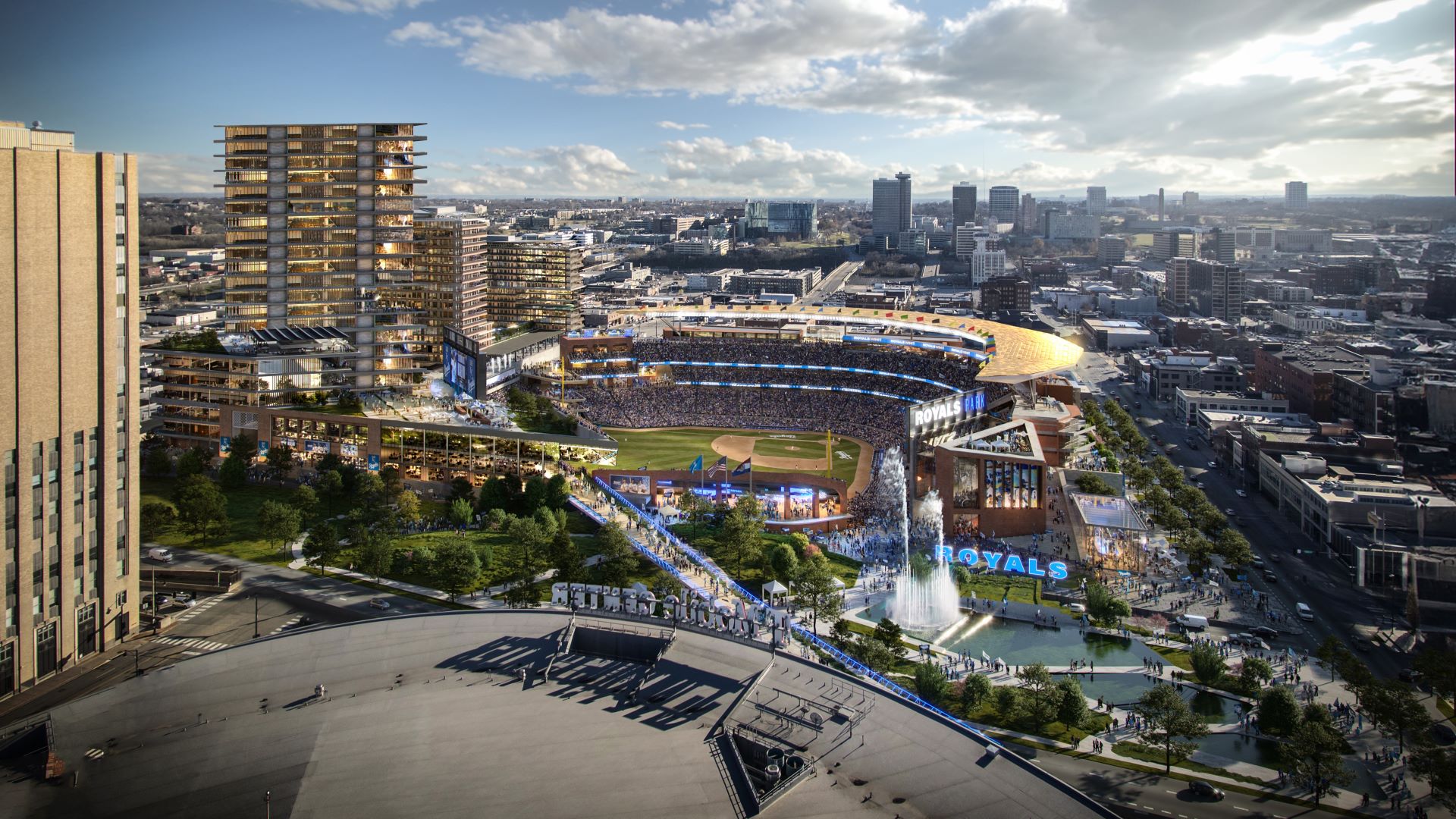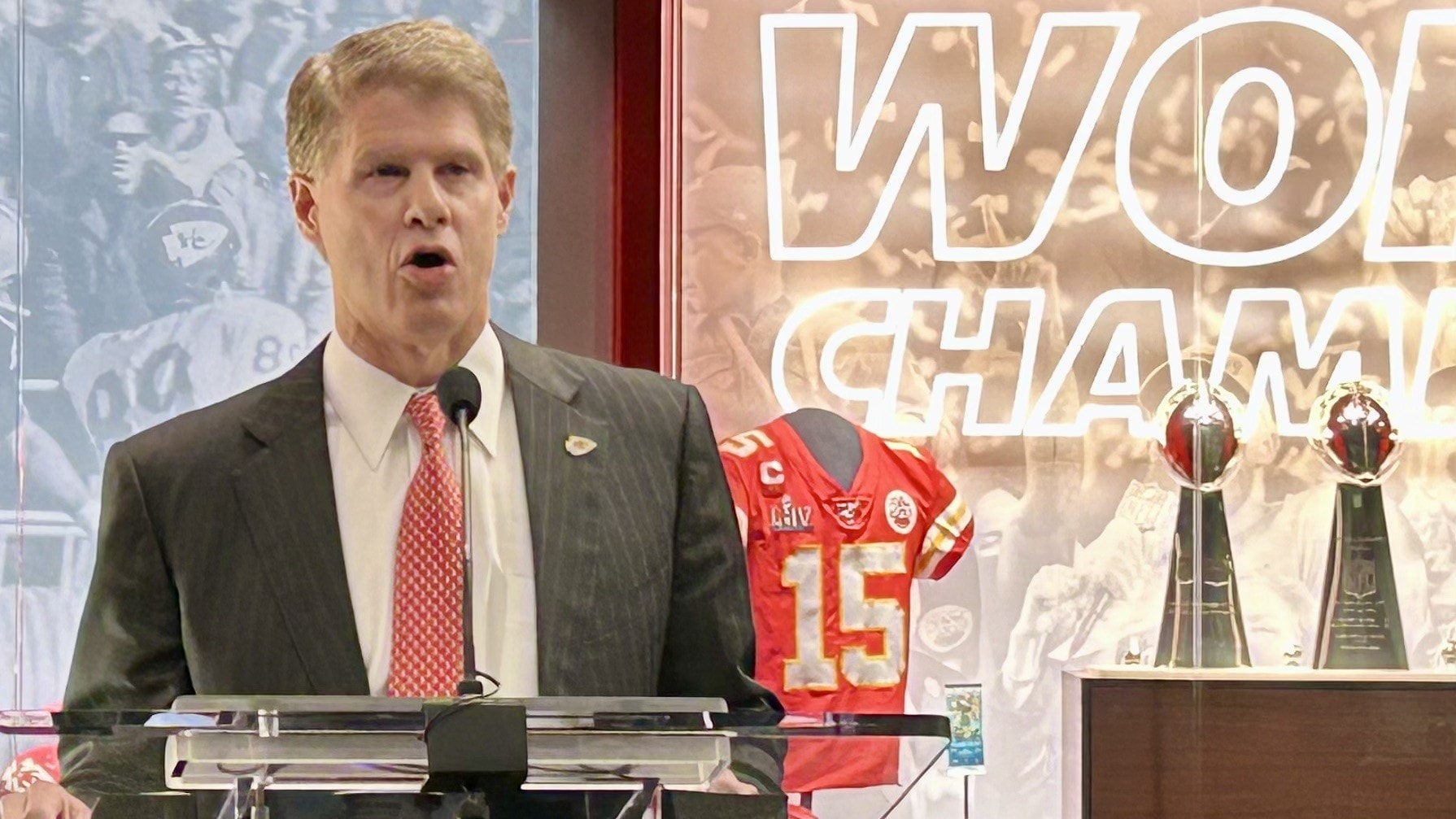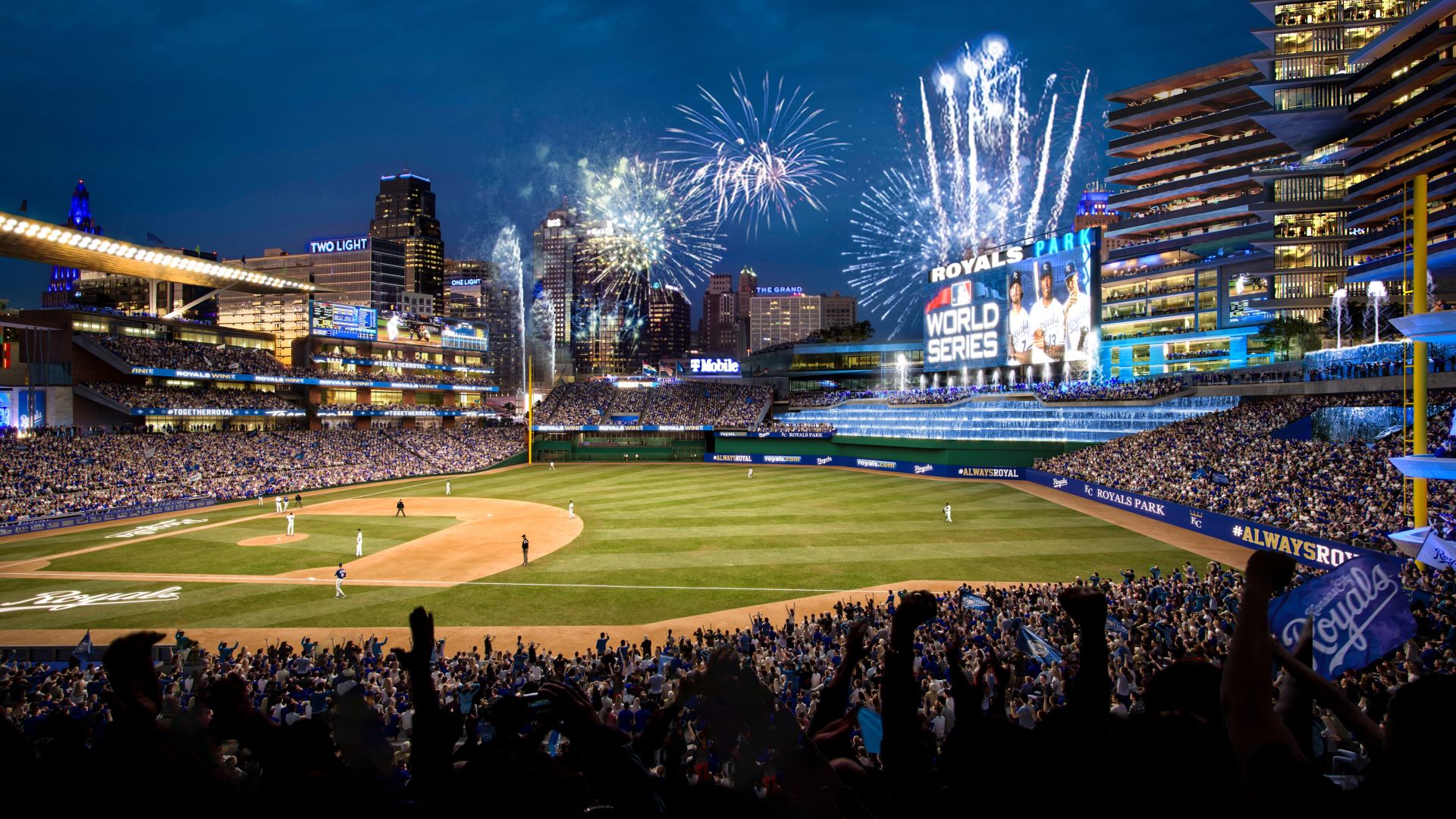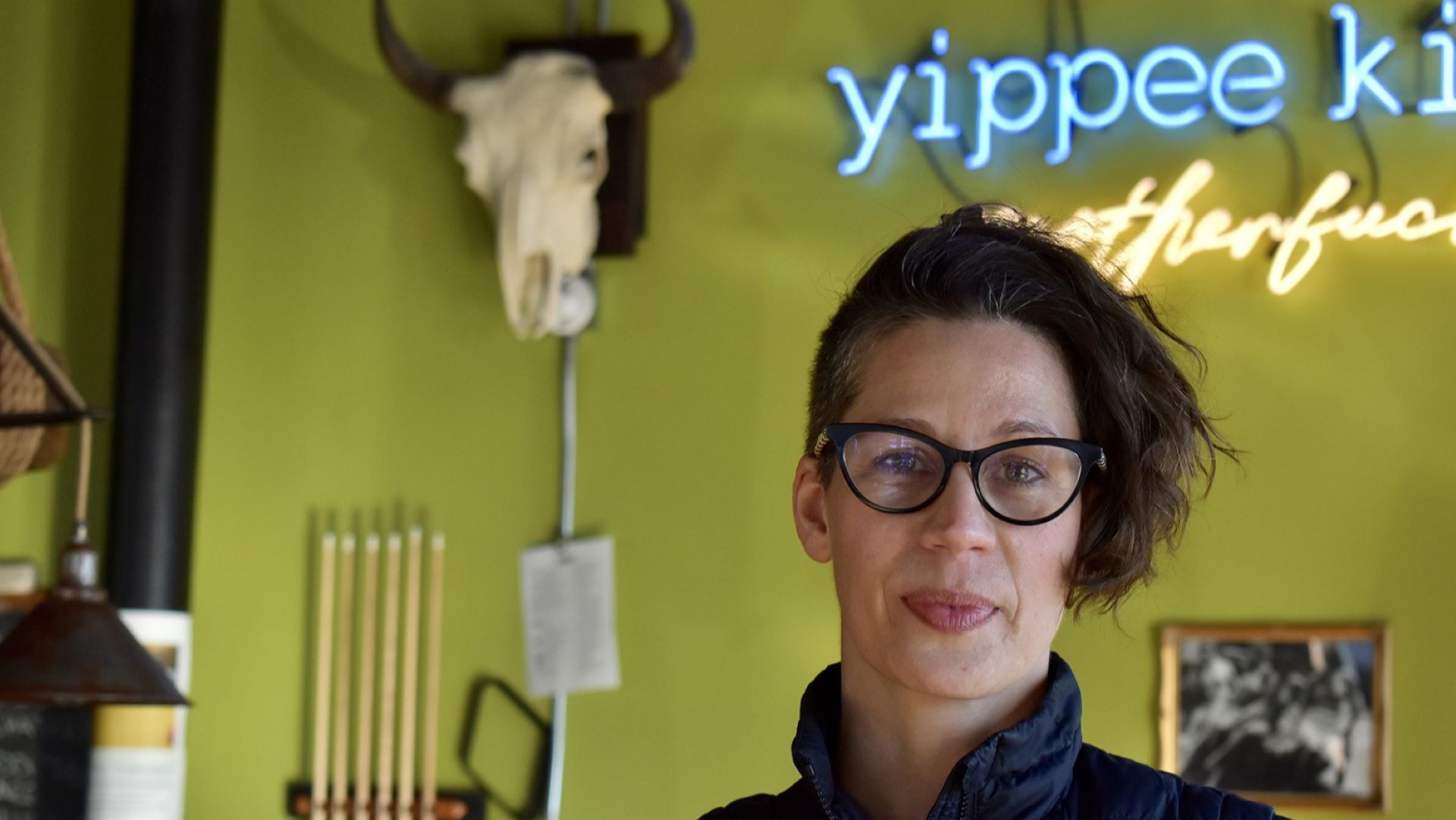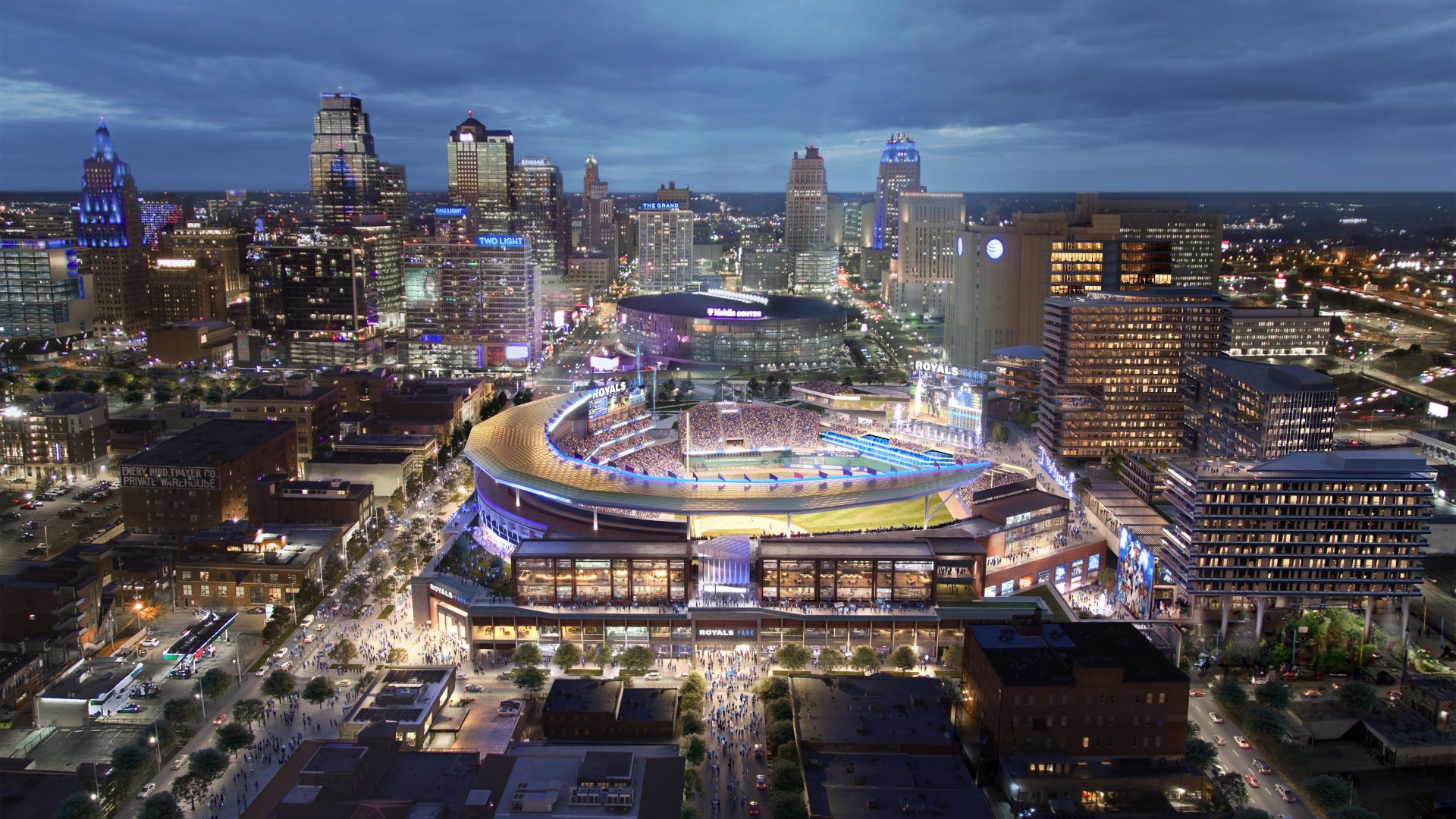Jackson County Voters Reject Stadium Sales Tax to Help Fund New Royals Ballpark Intense Campaign Ends in Overwhelming Rejection
Published April 2nd, 2024 at 9:51 PM
Above image credit: “Vote No” signs stuck in the windows on The Pairing in the East Crossroads. (Nikki Overfelt Chifalu, Startland News)Jackson County voters handed the Kansas City Royals and Chiefs a major setback on Tuesday, rejecting a stadium sales tax extension that would fund a new downtown baseball stadium and renovations at Arrowhead Stadium.
Question 1 would have repealed Jackson County’s existing 3/8th-cent sales tax and replaced it with a tax at the same level until 2064. The results mean that the existing sales tax will end in 2031, when the Royals and Chiefs’ leases expire, and can only be used on the existing Truman Sports Complex properties.
“No” prevailed with 58% of the vote, compared to 42% “yes” votes.
Tuesday’s results followed months of intense campaigning from the city’s premier sports teams, which poured $3 million into the “yes” campaign.
But they came up short against concerted opposition from community groups that included citywide housing union KC Tenants, workers’ rights groups like Stand Up KC and small businesses in the Crossroads. Many of them argued that Jackson County taxpayers should not publicly subsidize private development.
The sales tax would have generated an estimated $2 billion over its 40-year lifespan. The Royals said their half of the sales tax revenue would go toward building a $1 billion ballpark in Kansas City’s Crossroads neighborhood. The Chiefs said they would use their half for an $800 million renovation at Arrowhead Stadium.
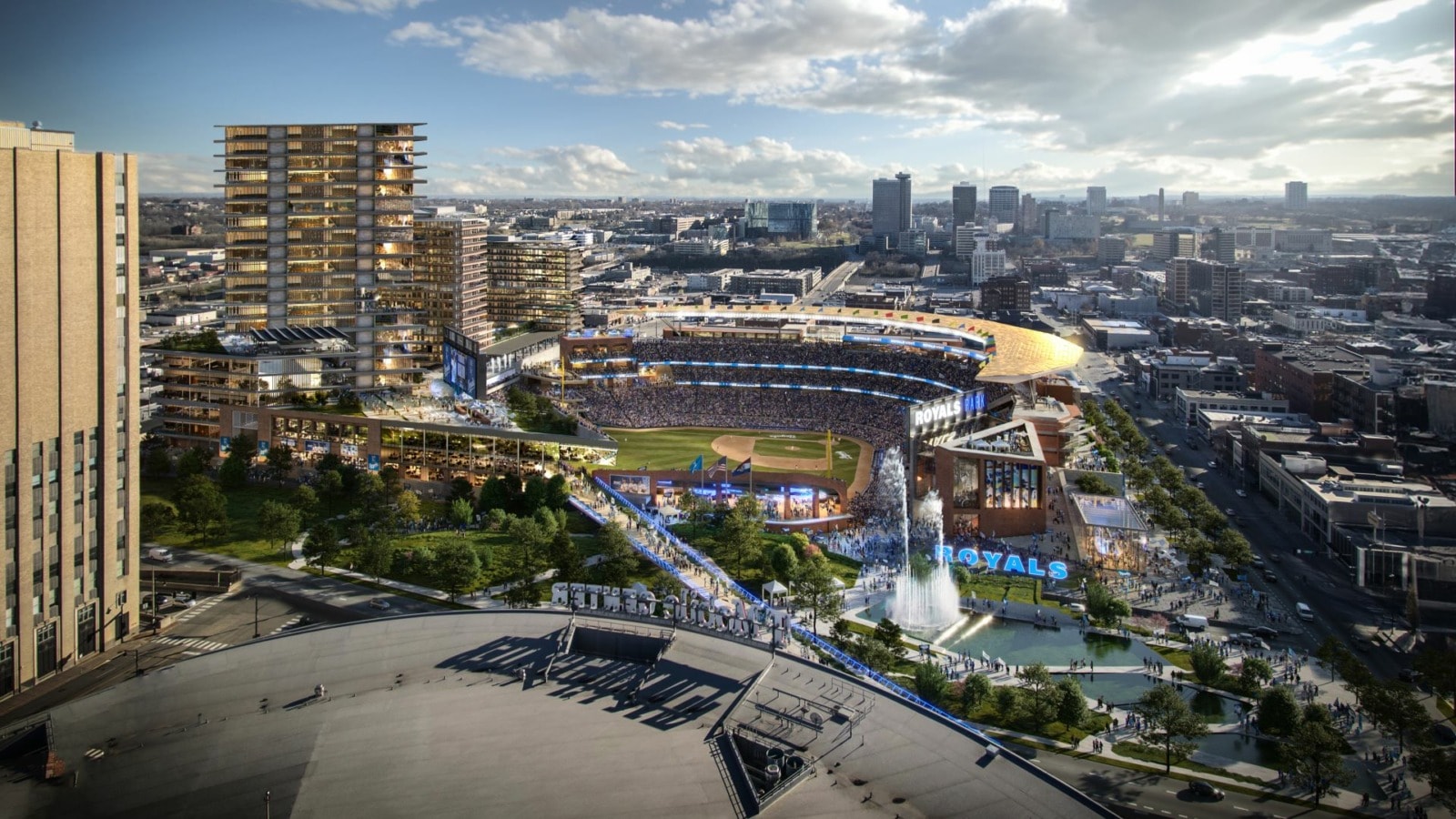
Both teams have repeatedly said that renewal of the 3/8th-cent sales tax is crucial for them to stay in Jackson County.
The “vote yes” campaign leaned on that messaging in the weeks leading up to the April election, with ads and mailers heavily touting the success of the Chiefs’ back-to-back Super Bowl wins and urging voters to “Keep the Royals and Chiefs in Jackson County.”
In return for the public’s support on the sales tax, the teams have made some commitments to support affordable housing, public transit and other programs in Jackson County. They’ve also pursued benefits agreements with organizations like Kansas City Public Schools and the Crossroads Community Association.
But voters like Nathan Young, who lives in downtown Kansas City, were not swayed by those appeals.
“I don’t know what else you could bring to a baseball stadium that would improve the Kansas City area,” Young said. “But doing that, they’d already be taking down already established businesses, homes. Also, I don’t trust the state to put money to the right things going through the Royals.”
Eli Handwork lives in the Power and Light District and voted no. He said he doesn’t think a stadium would work logistically downtown, and that it’s unfair to use public funding.
“I don’t think we have the infrastructure to support all the parking and stuff they need, and I think all the construction and tearing down (of) the small businesses that are there — I don’t really like that,” Handwork said. “I think as a larger principle, I don’t like the idea of handing out a bunch of taxpayer money to billionaires who don’t need it.”
Kansas City Mayor Quinton Lucas said in a statement on X Tuesday night, as votes rolled in and “no” votes pulled out ahead, “the people of Kansas City and Jackson County love the Chiefs and Royals.”
“Today, they rejected plans and processes they found inadequate. Over the months ahead, I look forward to working with the Chiefs and Royals to build a stronger, more open, and collaborative process that will ensure the teams, their events and investments remain in Kansas City for generations to come,” he said.
Stadium Vote Exposes Deep Divides
The vote on the stadium sales tax has exposed deep divides in Kansas City that do not fall across traditional partisan lines.
Opponents of the tax included the citywide tenant union KC Tenants, which in recent elections has flexed its political influence, and the newly-created Committee Against New Royals Stadium Taxes. That group formed soon after the Royals publicized their stadium plans.
Workers rights groups like Stand Up KC criticized the Royals for not making enough assurances to low-wage workers and residents. Small business owners spoke out against a Crossroads stadium displacing existing local businesses — the Royals proposal could require demolishing several blocks of buildings — while some patrons believed a ballpark was a mismatch for the longtime arts district.
Other Royals fans simply said they don’t want the teams to leave Kauffman Stadium.
Over months of negotiations, community groups criticized the Royals for a lack of transparency around the ballpark plans, including their months-long delay in choosing a site. The team surprised many residents in February by selecting the Crossroads location over the two options they had previously advertised: Kansas City’s East Village or North Kansas City.

The Royals announced their lease and development agreements with Jackson County just last week. Neither of those documents are finalized yet.
The “vote yes” campaign vastly outspent KC Tenants and the Committee Against New Royals Stadium Taxes. KC Tenants spent $75,000 on TV ads and $30,000 on mailers. The Committee Against New Royals Stadium Taxes raised $11,511.
The “vote yes” campaign received support from local building trades unions who would benefit from the construction of a new stadium. Other endorsements included the Service Employees International Union (SEIU) Local 1, which represents current Kauffman Stadium workers, and Lucas.
Some local property owners also supported the Crossroads stadium.
Independence resident Gay Lynn voted yes on the ballot measure. She said she was hopeful the team would give money back to the community.
“Whether we like it or not, I just want businesses to succeed from that,” Lynn said on Tuesday. “I don’t want it to just benefit a football or a baseball team, I want all of us to benefit from it.”
In the days leading up to the vote, some messaging made a clear negative turn.
One mailer included images of KC Tenants and said, “Don’t let the radical left take the Chiefs from us.” The mailer was paid for by Cornerstone 1791, a Missouri nonprofit that owns Liberty Alliance USA, a group representing Missouri conservatives. KC Tenants called the mailer racist.
What’s Next
The failure of Tuesday’s ballot measure could send the Royals back to the drawing board.
Despite the teams’ messaging, the results don’t mean the Royals and Chiefs are packing up and leaving Kansas City tomorrow, or even next month.
Both of their current leases at the Truman Sports Complex end in 2031. Jackson County’s existing 3/8th-cent stadium sales tax expires the same year.
The teams could put the stadium sales tax on a future ballot, but that will depend on approval from the Jackson County Legislature. Current County Executive Frank White publicly opposed the April ballot measure and initially vetoed it, before the Legislature overrode his veto.
The teams could also privately fund a new Royals stadium and renovations to Arrowhead.
Celisa Calacal covers Missouri politics and government for KCUR 89.3, where this story first appeared. KCUR is a member of the KC Media Collective. Isabella Luu contributed reporting.
